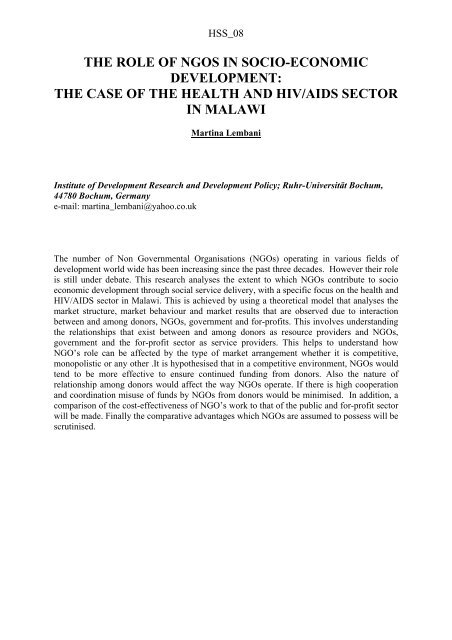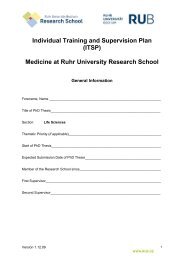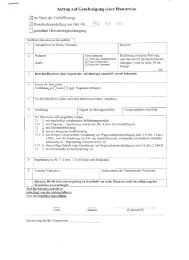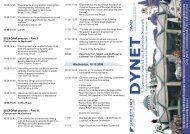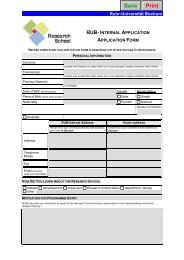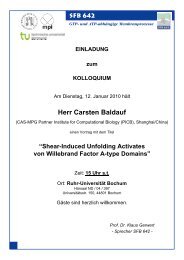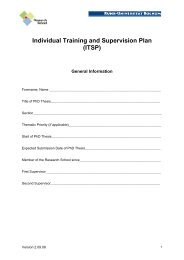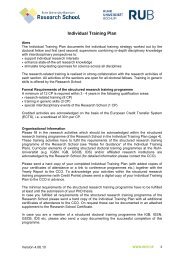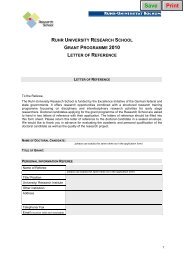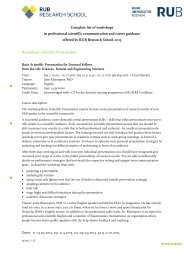Section Days abstract book 2010.indd - RUB Research School ...
Section Days abstract book 2010.indd - RUB Research School ...
Section Days abstract book 2010.indd - RUB Research School ...
Create successful ePaper yourself
Turn your PDF publications into a flip-book with our unique Google optimized e-Paper software.
HSS_08<br />
THE ROLE OF NGOS IN SOCIO-ECONOMIC<br />
DEVELOPMENT:<br />
THE CASE OF THE HEALTH AND HIV/AIDS SECTOR<br />
IN MALAWI<br />
Martina Lembani<br />
Institute of Development <strong>Research</strong> and Development Policy; Ruhr-Universität Bochum,<br />
44780 Bochum, Germany<br />
e-mail: martina_lembani@yahoo.co.uk<br />
The number of Non Governmental Organisations (NGOs) operating in various fields of<br />
development world wide has been increasing since the past three decades. However their role<br />
is still under debate. This research analyses the extent to which NGOs contribute to socio<br />
economic development through social service delivery, with a specific focus on the health and<br />
HIV/AIDS sector in Malawi. This is achieved by using a theoretical model that analyses the<br />
market structure, market behaviour and market results that are observed due to interaction<br />
between and among donors, NGOs, government and for-profits. This involves understanding<br />
the relationships that exist between and among donors as resource providers and NGOs,<br />
government and the for-profit sector as service providers. This helps to understand how<br />
NGO’s role can be affected by the type of market arrangement whether it is competitive,<br />
monopolistic or any other .It is hypothesised that in a competitive environment, NGOs would<br />
tend to be more effective to ensure continued funding from donors. Also the nature of<br />
relationship among donors would affect the way NGOs operate. If there is high cooperation<br />
and coordination misuse of funds by NGOs from donors would be minimised. In addition, a<br />
comparison of the cost-effectiveness of NGO’s work to that of the public and for-profit sector<br />
will be made. Finally the comparative advantages which NGOs are assumed to possess will be<br />
scrutinised.


